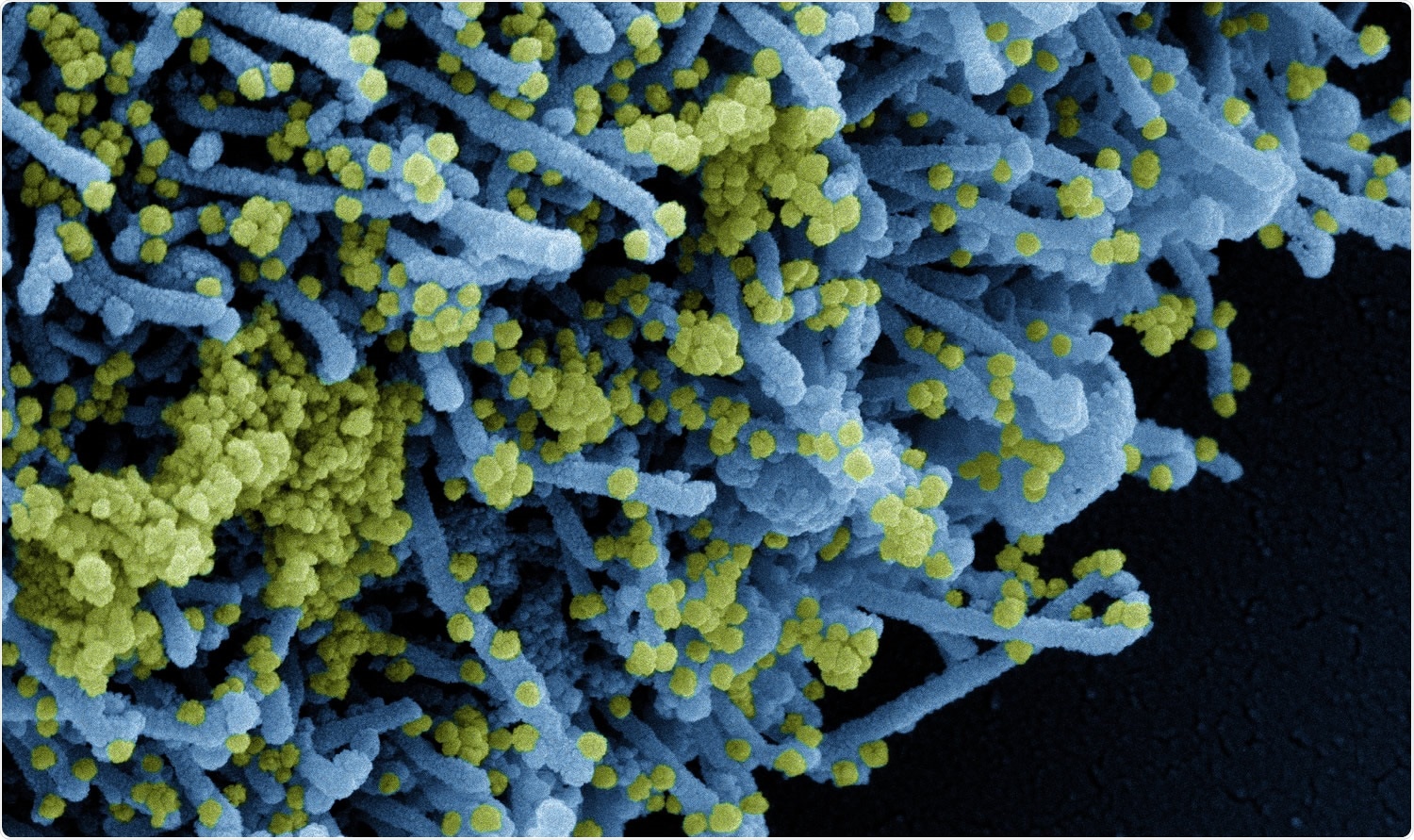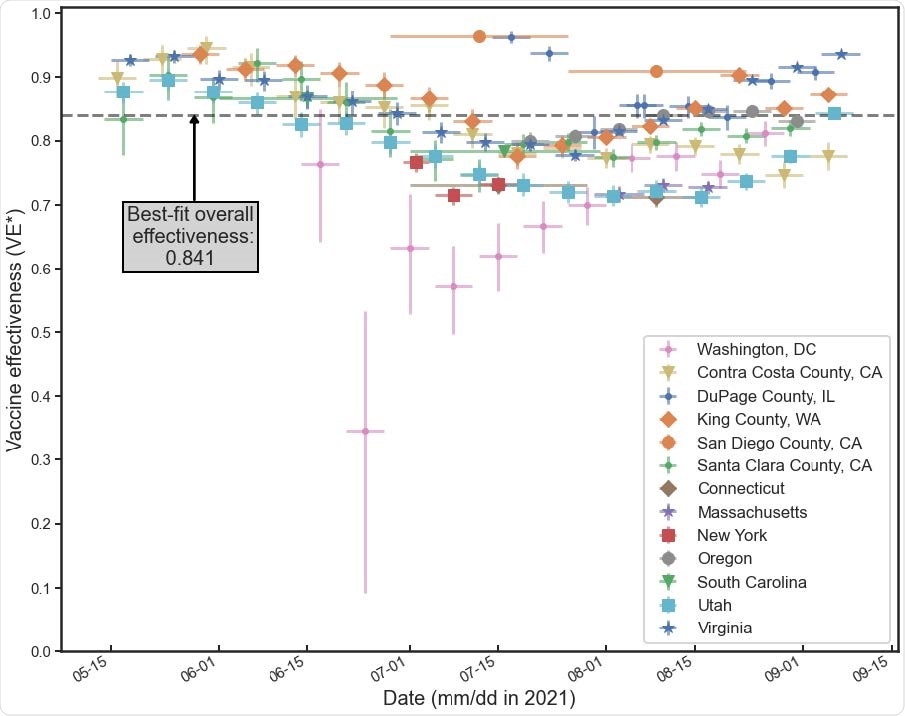
Has the Delta (B.1.617.2) variant reduced vaccine effectiveness? If you ask Ian Foster of Argonne National Laboratory and colleagues, the answer is not really. New research published in the preprint medRxiv* server suggests vaccines approved in the United States are stable and well-performing.

Delta has overtaken the Alpha variant as the most dominant severe acute respiratory coronavirus 2 (SARS-CoV-2) virus in the United States. It caused an uproar of concern in late summer 2021 after reports of breakthrough infections in vaccinated individuals.
The United States remains the country with the highest number of cases and deaths from coronavirus infection 19 (COVID-19). In the past 28 days, there have been over 4 million coronavirus cases and over 48,000 deaths.
The researchers suggest that vaccines are an excellent protective measure against Delta as it’s unlikely the Delta variant significantly evades vaccine-induced immunity. Additionally, differences in vaccine effectiveness likely come from the ages of vaccinated individuals.
“We conclude from these data that there is no evidence that the Delta variant escapes immunity from the COVID-19 vaccines in use in the U.S.A., and that there is therefore no evidence that the variant causes additional breakthrough infections, above and beyond the infections already expected due to the known imperfect effectiveness and efficacy of the available COVID-19 vaccines,” wrote the team.
Study details
The researchers used data sources from public health authorities in 7 states, 5 counties, and the District of Columbia to collect COVID-19 testing results. They grouped the results based on vaccination status between May 15 and September 15, 2021.
The time period was chosen because the Delta variant has become more prevalent in the United States. As a result, its transmission across the country reached almost 100% by late August 2021.

Vaccine effectiveness did not falter in the presence of the Delta variant
Vaccine effectiveness remained high across the United States from mid-May to late August 2021.
Only Washington D.C. showed a slight drop in vaccine effectiveness in late June though this variation may have been from low testing in the area.
From early to mid-July, there was a slight dip in vaccine effectiveness in almost all studied areas. However, the drop in vaccine effectiveness was recovered by early September.
Among individual U.S. counties plus Washington D.C, there is no trend of decreasing vaccine effectiveness which would be expected if the Delta variant could evade vaccine-induced antibodies. “Instead the data shows [vaccine effectiveness] fluctuations, some rising, some falling, some even oscillating, and these are presumably driven by demographic and environmental factors affecting vaccination statistics…,” explained the researchers.
State-level data showed a similar look: no continuous decrease of vaccine effectiveness was observed.
Age-related differences in vaccine cohorts
The researchers categorized data on vaccinated populations by ages 12–18, 18–65, and 65 and above. Doing so allowed them to look at the average age of the vaccinated individual.
The average age for the vaccinated individual dropped by four years and three months over the summer of 2021. Thus, vaccine effectiveness likely increased as more younger adults got vaccinated during the spread of Delta.
The researchers suggest the increased vaccination uptake during the summer may have contributed to the “recovery” of vaccine effectiveness later on.
While age appears to play a potential factor in vaccine effectiveness, other factors may be at play. <ore research looking into changes in vaccinated and unvaccinated cohort demographics, changes in social behavior, or environmental effects is needed to provide a better explanation for the mild and temporary fluctuations in vaccine effectiveness.
*Important Notice
medRxiv publishes preliminary scientific reports that are not peer-reviewed and, therefore, should not be regarded as conclusive, guide clinical practice/health-related behavior, or treated as established information.
- Blaiszik B, et al. (2021). The Delta Variant Had Negligible Impact on COVID-19 Vaccine Effectiveness in the USA. medRxiv. doi: https://www.medrxiv.org/content/10.1101/2021.09.18.21263783v2
Posted in: Medical Research News | Disease/Infection News
Tags: Antibodies, Coronavirus, Coronavirus Disease COVID-19, Efficacy, immunity, Laboratory, Public Health, Research, Respiratory, SARS, SARS-CoV-2, Severe Acute Respiratory, Vaccine, Virus

Written by
Jocelyn Solis-Moreira
Jocelyn Solis-Moreira graduated with a Bachelor's in Integrative Neuroscience, where she then pursued graduate research looking at the long-term effects of adolescent binge drinking on the brain's neurochemistry in adulthood.
Source: Read Full Article